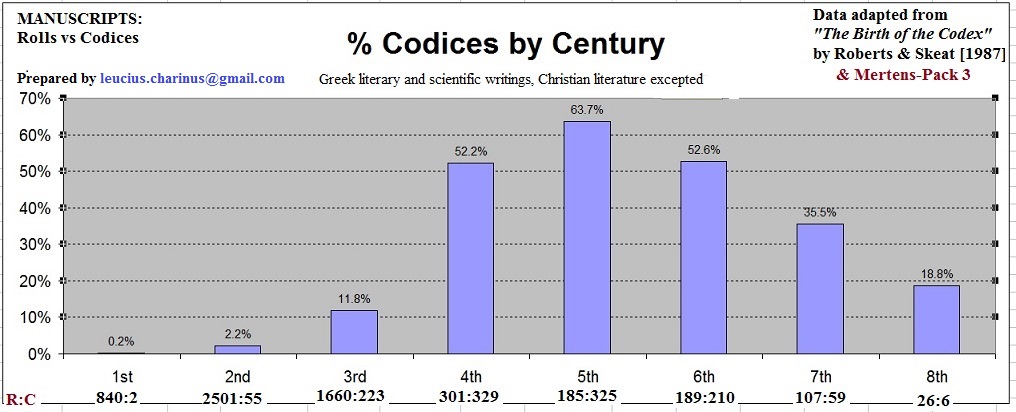dejuror wrote:The supposed early "history" of the Church is bogus.
The mere fact that the very Canon of the Church is littered with FAKE 1st century authors is evidence that no Apologetic writing can be accepted as credible WITHOUT corroboration.
It took hundreds upon hundreds of years before it was deduced that the authorship, chronology of authorship and contents of the NT Canon was manipulated.
It is extremely important to understand that virtually ALL CHRISTIAN writers of antiquity put out the false bogus propaganda that the Gospels of the NT Canon were composed by Matthew, Mark, Luke and John and a single writer under the name of Paul wrote ALL the Epistles of the Pauline Corpus including Hebrews.
The False claims of authorship and chronology of authorship was INVENTED to promote the FALSE PRIMACY of the Jesus cult of Christians.
The history of the Jesus cult was really LATER than the history of the so-called Heretic.
In effect, the stories of the so-called Heretics PREDATED the Jesus stories of the NT Canon including the Pauline Corpus.
The so-called Heretics were most likely the FIRST cult of Christians with stories of Jesus--NOT Matthew, Mark, Luke, John, Paul, Peter, James and Jude.
Matthew, Mark, Luke, John, Paul, Peter, James and Jude are ALL FAKE 1st century authors.
Matthew, Mark, Luke, John, Peter, James and Jude have NO history outside the NT and Apologetics.
Ok, we're getting somewhere! I think many of those who side with the 'HJ' side here don't ascribe priority to orthodox Christianity. However, which particular "heresies" do you think we should look into to find out more about the origins of Christianity?


